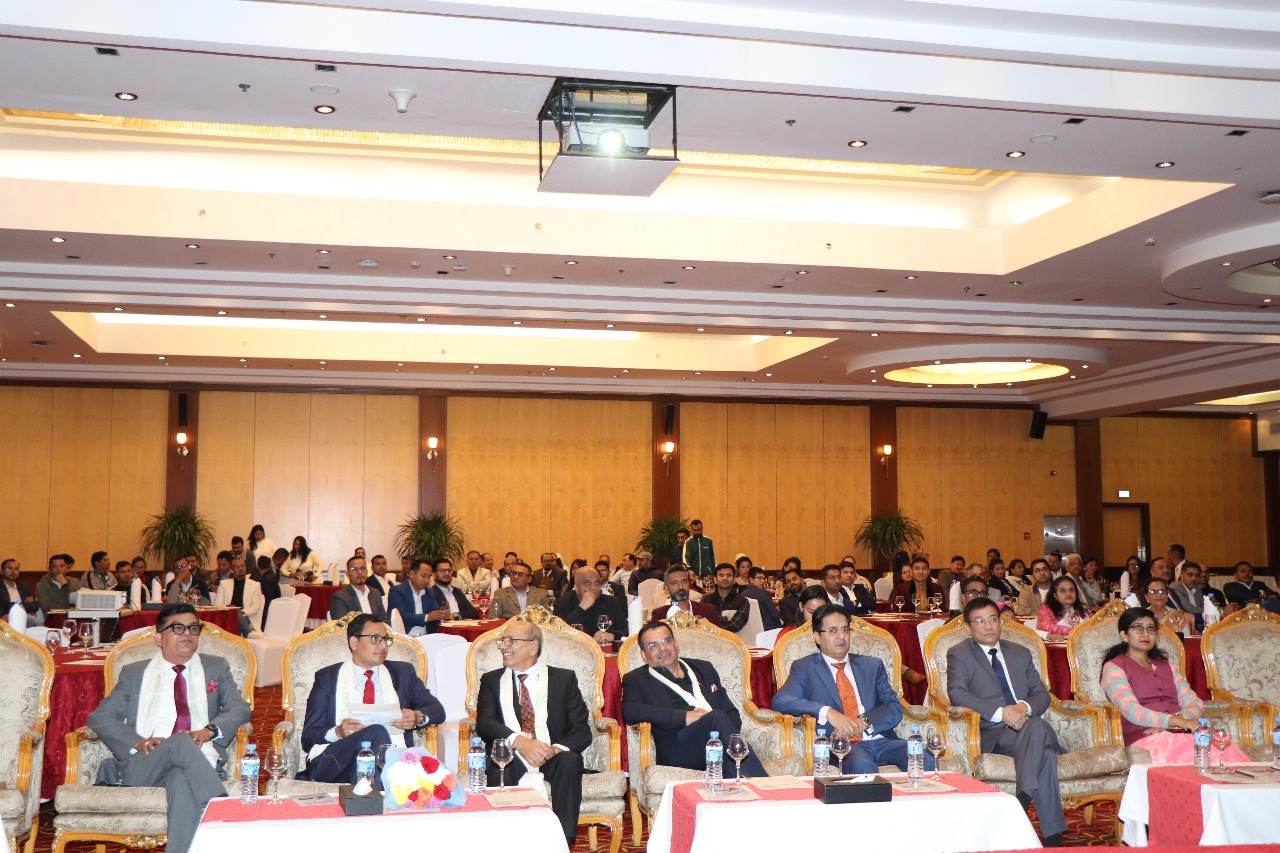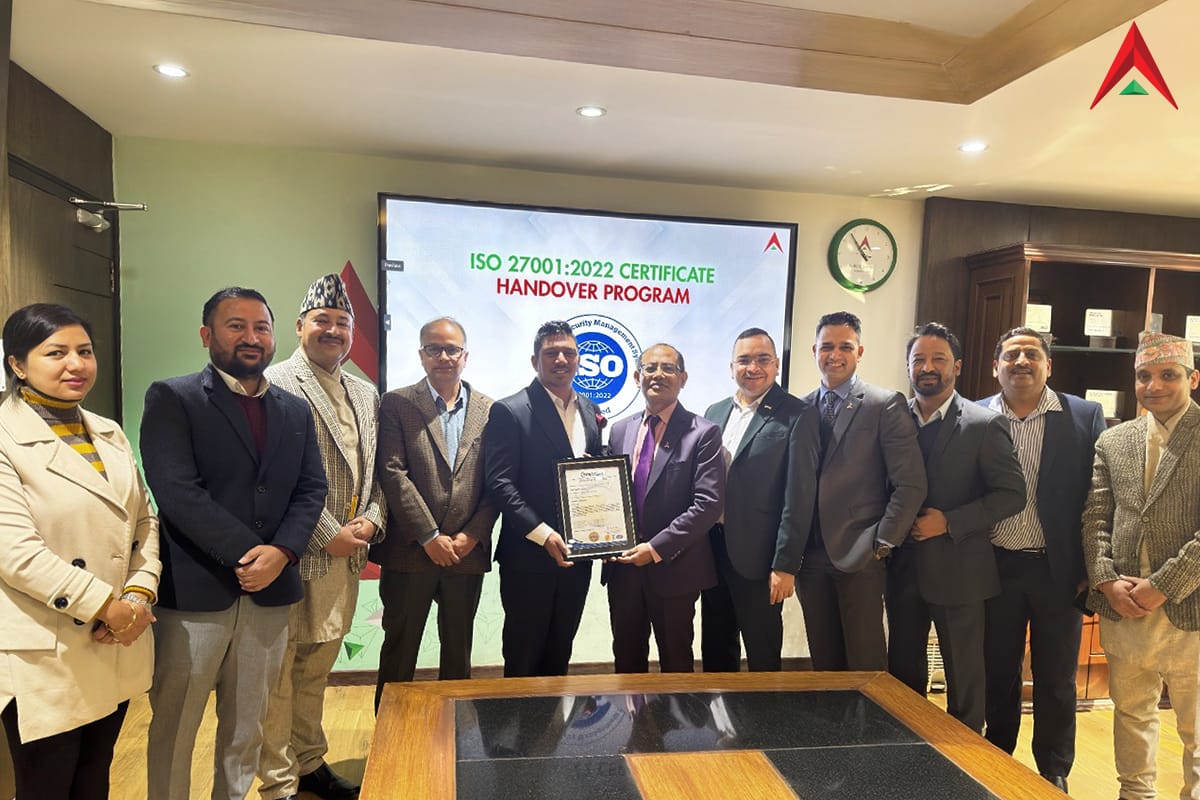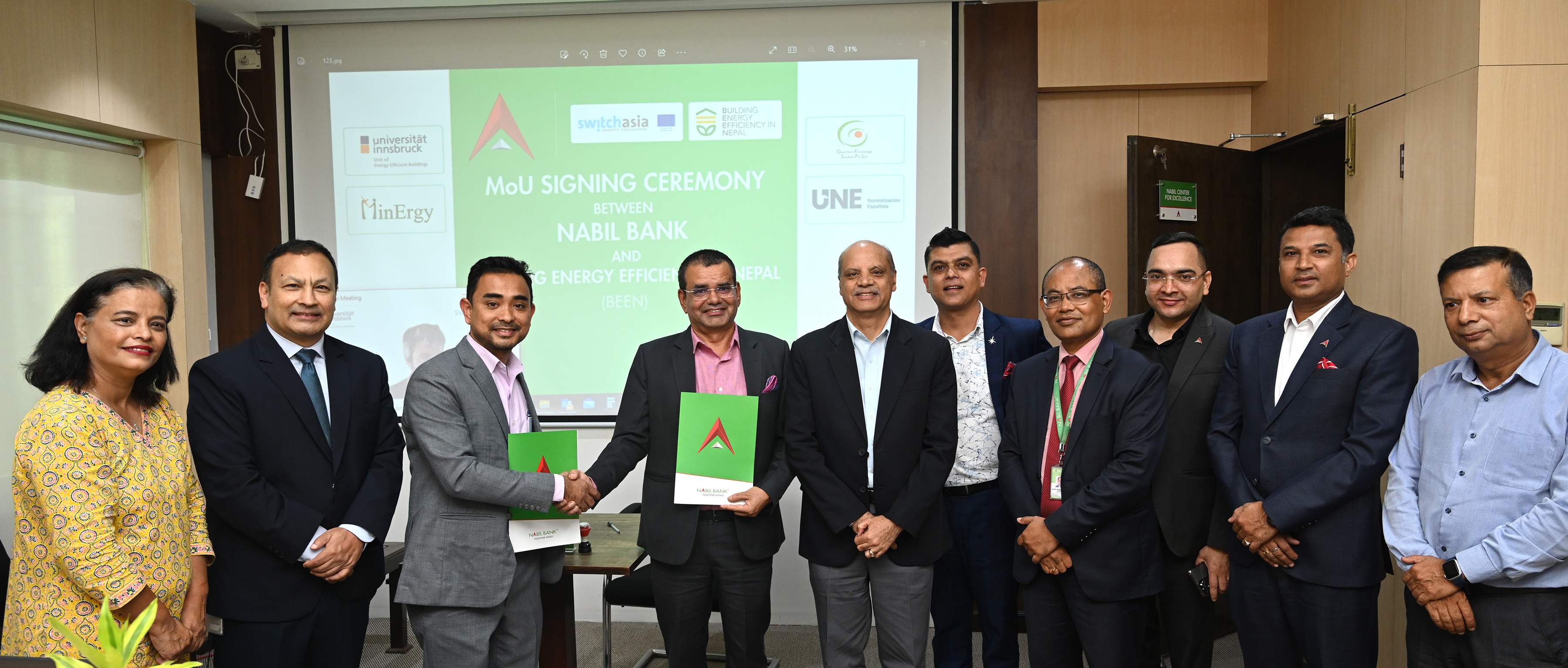
Sustainable banking is a relatively novel term in Nepal. Despite efforts by a few financial institutions, the term has often been lost in the country’s financial sector which is in a race to generate maximum profit.
However, there have been some efforts to integrate sustainability into the country’s banking sector. Some banks have also taken some concrete initiatives. Nabil Bank, for example, through various initiatives and partnerships, has been focused to support the UN’s Sustainable Development Goals (SDGs). The bank has focused on investment in sustainability-focused businesses including the agriculture sector and has run different urban and rural entrepreneurship programmes. The bank is also a member of the Partnership for Carbon Accounting Financials (PCAF) and has taken bold steps to measure carbon emissions in the projects it has financed over the years.
To know more about the sustainable banking initiative, Onlinekhabar spoke to the Chairperson of the bank, Upendra Prasad Poudyal, who has been pushing for sustainable banking since 2016 when he was exposed to The Global Alliance for Banking on Values (GABV). Poudyal has over three-decade experience in Nepal’s banking sector and is the Asia Pacific Regional representative of GABV.
Excerpts:
What is the sustainable banking initiative? When did Nepal start implementing it?

Sustainable Banking has been practiced in different forms for quite some time; and now we are doing it in an organised manner with special and added focus. Banking must contribute to and use finance such that it contributes to sustainable economic, social and environmental development. Sustainable banking is a banking business conducted in such a way that its finance is used to ensure wise and careful use of resources. The bank should focus its activities in a manner that will ensure the planet is livable for current and future generations.
What type of resources?
Water, electricity, land use and other natural resources including man-made resources like this building. We have a trend of demolishing buildings and rebuilding them from the ground up if we don’t like them. But we can renovate them instead. We should seriously think of recycling and reusing any items we are using. This will ultimately help limit the overuse of natural resources.
Sustainable banking is something that will help the environment in the long run. Right now, environmental degradation is taking place, but we need to work towards making the world a better place and livable for all today and future. The UN along with other organisations have already committed to combatting climate change and global warming. Why? Because the world is suffering and if the rate at which global warming is continuing, the human race could be extinct.
These discussions take place and declarations are signed every year during the UN’s conference of parties (COPs). Our Prime Minister himself committed to net zero carbon emission during COP26 in Glasglow by 2045. We need to act now to make that commitment a reality.
Apart from environmental aspects, what other aspects does sustainable banking focus on?
Sustainable banking also focuses on social issues. It promotes inclusive growth and social equity. Through sustainable banking, we also support the UN’s Sustainable Development Goals (SDGs).
Is it possible in Nepal?
Yes, it is. We’ve been doing it. We’ve made very good progress in financial inclusion through micro-lending which focuses on women in rural areas and assist them in income-generating activities. This has been happening since the 90s as different rural development banks and micro finance institutions and also other banking institutions have been financially empowering women. This is part of sustainable banking. We are supporting clean energies including hydropower and solar power generation under the directed lending requirements from the Central Bank.
The banking sector financed the garment and carpet industry during the 1980s and 1990s when it was doing well. Banks are also financing various businesses that are using the natural resources of the country contributing to import substitution. This has also contributed to the country’s sustainability.
There have also been investments in projects extracting natural resources haphazardly that have impacted environmental degradation. But, now, with sustainable banking, we want to discourage such investment in these projects. At Nabil Bank, we don’t want to finance projects that can result in environmental degradation. We are bringing these policies.
When I started banking a few decades back, my first credit transaction was with a tobacco project. Now, if people come to us to finance a cigarette company, we will not finance it because this impacts society in a negative way. We look at our social contribution before taking financial decisions. All banks need to think about environmental, social and governance implications before making any financial decisions. The banks need to integrate ESG into their activities and decision making process.

Does the central bank also talk about sustainable banking?
The central bank always talks about investing in priority and deprived sectors including clean energies and income generating activities of people at the bottom of the pyramid. Investment in hydropower will limit the use of fossil fuels, which is also a part of sustainable banking. Nepal Rastra Bank has been pushing for this for quite some time and asking banks to invest in productive sectors. This is also a part of sustainable finance.
Likewise, Nepal Rastra Bank came up with an environmental social risk management system that banks have to incorporate into their organisation. Issuing those guidelines has been a landmark. The guidelines are based on International Finance Corporation (IFC)’s Performance Standards. These standards are focused on environmental, social and governance considerations. These issues have already been brought to Nepal, but many banks in Nepal are yet to implement them in their entirety. We need to implement them to its spirit because the financial sector can make a big difference as it touches each sector of the economy and the lives of the people. Banks in many countries made significant progress with the concept of sustainable banking.
So, is this what Nabil is trying to do then? Make a difference in terms of banking in the country?
Yes. That is the plan. Nabil Bank is taking the lead when it comes to sustainable banking. We are taking different initiatives including working with a global forum like the Forum on Partnership for Carbon Accounting Finance (PCAF) to measure carbon emissions out of our financing.
We need to analyse and measure the impact of our investments and report on them. There are various techniques that the PCAF has shared with us, through which we measure carbon footprints.
Nepal has already committed to being net zero by 2045 during the COP26 in Glasglow in 2021. The road map on how we will achieve net zero has also been prepared. The transition cost is going to be huge and banks will have to play a major role in bridging the gaps. The country needs to take appropriate actions as the situation is delicate right now as it’s a matter of human sustainability now.
If we talk deeper about sustainable finance, we import almost everything that we consume. What will we do if other countries stop exporting agro products? That is the basic need for survival and we will suffer a lot. Look at Sri Lanka, people are forced to reduce their food consumption.
Therefore, Nabil is committed to focusing on the agriculture sector, as we believe that can result in the country being self-sustainable and attaining food security. We’re already sustainable to a large extent when it comes to energy but we’ve still not reached a level where we can completely replace the use of fossil fuel and also ensure full energy security for the future.
We live in a free economy regime. Do they make fun when you say we need to do sustainable banking?
Until now, we’ve measured banking through the size of our balance sheets, lending and profits. That has been our sole focus. We’ve never measured the impact of our investments but now is the time to seriously think about it.
Apart from the profitability of the banks, the country’s economy should also prosper and the projects it financed should not degrade the environment and should always support social equity. Banking philosophy needs to change now as it should also focus on developmental needs. We as bankers should focus on people, planet and prosperity and measure our impact on the environment and society.
While we have to think about profits because that results in our sustainability, that doesn’t mean that to make profits, we compromise on environmental and social well-being.
Then, what should Nepal do to promote sustainable banking?
I still feel the focus should be on real economy and generating employment in the country. Our lands are barren as our youngsters don’t see a future and go abroad working for the benefit of other countries like Qatar, the UAE, and Malaysia. Yes, their remittance is helping our economy, but is that sustainable in the long run? I don’t think so. We need to retain our youngsters and help them make their living within the country and contribute to the country’s economy.
What are the steps Nabil has taken in terms of sustainable banking?
The first thing we considered is what we could do for our youths and the rural population. So we have started to conduct entrepreneurial programmes in both urban and rural areas and train them. We’ve undertaken financial literacy programmes too and oriented how they could be a part of the mainstream of the economy. We’ve also taken steps to finance graduates of these programmes.
Apart from that, we’ve been working on improving financing in the agriculture sector and giving mobilising our branches to invest in SME, MSME and in agriculture.
We also have continued to support solar and hydro projects to promote clean energy. We also finance business enterprises working on sustainability. We even have a six-month entrepreneurship course at various universities to produce young entrepreneurs. We also aim to provide financing to these entrepreneurs if they come up with viable business plans.

You mentioned Nabil Bank will not finance unsustainable projects. But, how do you ensure this?
We have a credit policy which has a negative list. The list clearly states sectors that the bank will not invest in or finance. For example, Nabil will not finance businesses related to arms and ammunition, cigarettes, casinos and those that aren’t environment-friendly.
But, what about projects you’ve already financed?
For those, we assess how to manage the project’s risks. For example, if we have financed a leather factory, we require them to initiate measures to reduce environmental pollution. We’re trying to impose conditions to neutralize the project’s negative impacts on society and the environment.
You’re also a part of the Global Alliance for Banking Values. What have you learnt from them?
Global Alliance for Banking Values is a network of independent banks using finance to deliver sustainable economic, social and environmental development. My participation in the GABV meeting in 2016 changed my perception of banking. My focus as a banker then was to increase the business of the bank and provide maximum return to the shareholders. Now, I have realised the need to assess the impact of banking on society and the environment.
GABV taught me to not finance projects that damage the environment and has a negative impact on society. It also talks about the need to focus on the real economy and to conduct the banks’ business with long term view. The bank must be resilient to outside disruptions.
We must not compromise the bank’s long term sustainability over profit. Values based banks also consider clients’ business and associated risks and maintain long-term relationships with them. The bank also needs to operate in a transparent way and be sensitive to the consumer’s protection. The bank must have inclusive governance and promote transparency. Being a part of GABV has been a valuable experience for me and I feel the financial institutions need to run with long term view with due consideration to social and environmental wellbeing.























